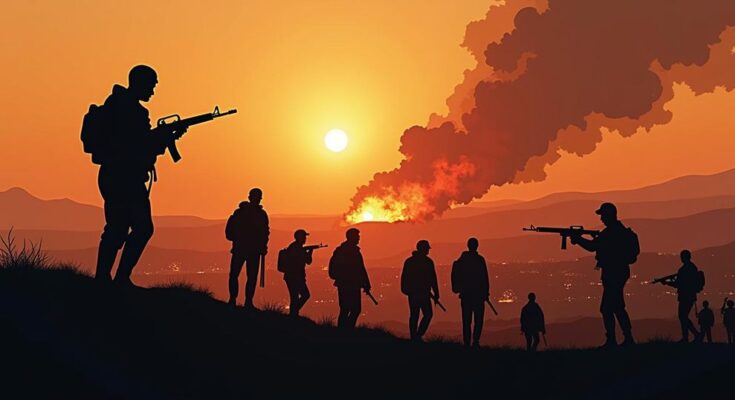Recent reports indicate significant humanitarian crises across Lebanon, the Occupied Palestinian Territory, Syria, Haiti, Ukraine, and Eastern Africa due to ongoing conflicts and instability. Lebanon faces severe civilian casualties, Gaza is reeling from a healthcare crisis, gang violence in Haiti displaces thousands, and Eastern Africa struggles with the effects of climate change and disease outbreaks, with urgent calls for international assistance across these regions.
In recent news, several regions are witnessing dire humanitarian crises exacerbated by conflicts and natural disasters. In Lebanon, ongoing hostilities have led to significant civilian casualties and substantial displacement, with over 1,700 fatalities and an estimated 1 million affected since October 2023. The infrastructure is suffering dramatically, and healthcare services are critically short due to numerous closures of hospitals and health centers. The humanitarian response is being scaled up, yet much more support is required following the UN’s Flash Appeal of $426 million. In the Occupied Palestinian Territory, violence in both Gaza and the West Bank continues. Israeli operations have resulted in civilian fatalities, including several Palestinian deaths during firefights. Numerous casualties have been reported, with OCHA reiterating the imperative to protect civilians and adhere to international law. In Gaza, health services are straining under a wave of healthcare demands and critical supply shortages due to ongoing violence and access issues. In Syria, airstrikes and rocket attacks have led to civilian deaths and hindered humanitarian efforts, particularly near UN offices and border crossings. The conflict is displacing families and disrupting basic services, affecting aid delivery. Haiti’s situation remains alarming as gang violence leads to increased internal displacement, now affecting over 700,000 individuals, primarily children. The educational disruption caused by insecurity is another critical concern, despite efforts from UNICEF aimed at enabling displaced children to return to school. In Ukraine, the humanitarian crisis continues with assaults on civilian targets, including a marketplace and energy facilities, further complicating recovery efforts and exacerbating the suffering of the population. Lastly, Eastern Africa faces one of the world’s most significant humanitarian challenges, with nearly 67 million individuals requiring assistance due to multiple crises driven by climate change, conflict, and health outbreaks. Funding for these efforts remains critically low, further stymying aid activities.
The current humanitarian landscape is shaped by both conflict and natural disasters across several regions, including Lebanon, Israel, Gaza, Syria, Haiti, Ukraine, and Eastern Africa. The conflict in Lebanon has resulted in unprecedented civilian distress, with a significant number of deaths and extensive displacement. In the Occupied Palestinian Territory, escalating violence has led to increased fatalities and a severe humanitarian crisis in Gaza. Syria is enduring ongoing airstrikes that hinder humanitarian assistance, while Haiti grapples with gang violence displacing hundreds of thousands. Ukraine continues to face significant civilian casualties from attacks, prompting urgent humanitarian responses. In Eastern Africa, severe humanitarian needs emerged from various causes, including climate change and health crises, impacting millions.
In summary, the humanitarian crises in Lebanon, the Occupied Palestinian Territory, Syria, Haiti, Ukraine, and Eastern Africa highlight the urgent need for timely and effective international aid and intervention. Each region faces unique challenges, ranging from displacement and violence to critical supply shortages and educational disruptions. It is incumbent upon the global community to mobilize support and resources to alleviate the suffering and restore stability to these vulnerable populations.
Original Source: www.unocha.org




